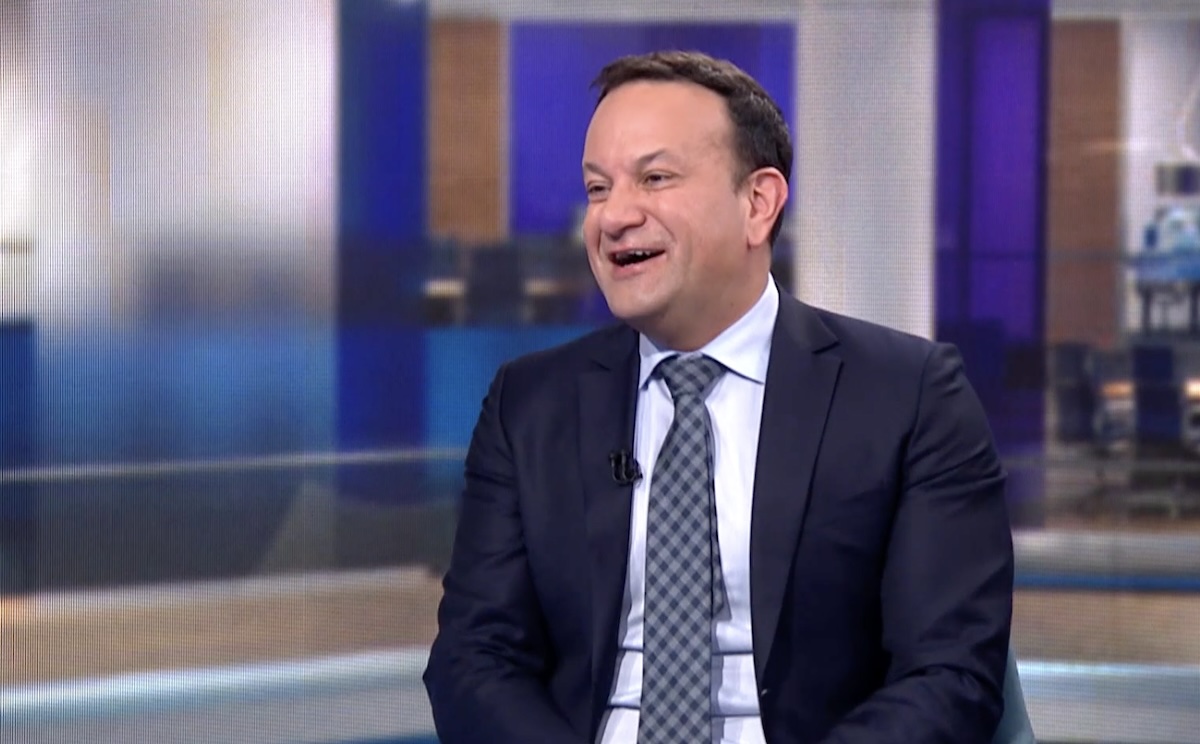
The outgoing Taoiseach Leo Varadkar has said the cost of a united Ireland to the 26 County state is a ‘small price to pay’ for reunification.
In his last interview as Taoiseach, he said “three or 4% GDP is a small price to pay” for a United Ireland, and pointed to Germany as an example where reunification was put ahead of economic concerns.
It follows a controversial claim on Friday by the Dublin-based Institute of International and European Affairs (IIEA) that suggested unification could cost the Irish government €20bn euros a year for 20 years. It came in a report headed by disgraced economist John Fitzgerald, whose infamously incorrect forecasts in 2008 helped propel the 26 County economy into a devastating crash requiring a crippling international bailout.
“I had a look at that report, and it’s based on certain assumptions and there are many variables, and that’s a potential cost. If you change the variables, the potential cost is a lot lower, but you know I have to say, unification should never be about money,” said Mr Varadkar.
“I don’t think when the Berlin Wall came down, people in west Germany never considered not unifying their country because of (cost).
“An economic case can be made that would cost less and that we could grow our economy, and economic growth is the best way to generate wealth, but it shouldn’t be about that.
“If you believe in the unification of your country, three or 4% of GDP is a small price to pay.”
Mr Varadkar last week formally resigned the role of Taoiseach after his shock announcement last month that he would step down, believing he was no longer the person for the role.
He has been replaced by Simon Harris, who became the youngest Taoiseach in a Dáil vote on Tuesday.
During his last engagement as Irish premier in Armagh yesterday, Mr Varadkar said he was “confident the (Stormont) institutions are stable”.
When asked about unionism’s negative view of him after his stance on Brexit and the Irish Sea border, he said: “I hope perhaps in a few years’ time, in the fullness of time and with hindsight, that might be reassessed.”
He was attending a meeting of the North-South Ministerial Council, the first in two years.
Speaking after the meeting, Stormont’s First Minister and Sinn Fein deputy leader Michelle O’Neill urged Fine Gael not to “bury their head in the sand” on the debate about a United Ireland following Mr Varadkar’s departure. His replacement as Taoiseach, Simon Harris, said at the weekend that unification was “not a priority”.
The IIEA report is based on a model in which the 26 County economy is transposed onto a collapsed northern economy by matching state payments through direct state aid, and by assuming the British government fails to honour its public debt and any of its financial obligations to its former subjects.
The estimate was immediately dismissed by several economists and by Sinn Fein.
“For me, it’s not a question of can we afford unity,” said Sinn Fein leader Mary Lou McDonald. “The real question is can we afford to continue with partition? I think the answer to that question is no.”
Sinn Féin’s Six County Finance Minister Caoimhe Archibald said other research had indicated that Irish unity could boost the all-island economy and that the current priority should be “planning and preparation”.
“Economic performance in the north has suffered enormously as a result of partition and more recently the negative impact of Brexit,” she said.
“Reunification would best serve Ireland’s economic interests and would deliver economic and social benefits for the whole island.”
Aontú leader Peadar Tóibín also disputed the report’s finding saying it “has a number of big problems”.
He said the study “takes as a given that the North of Ireland would exit with a portion of British national debt. The burdening of Ireland with British debt is not a given.”
Mr Tóibín also said none of the estimates include savings from reducing public sector duplication.
Pensions have been paid for by people’s national security contributions in the North,” he said, adding that the British government “would owe pensions to people who have paid contributions until unity”.
Mr Tóibín said: “Incredibly the report leaves out the elephant in the room, that in a united Ireland, the north’s economy would be turbo-boosted.
“It would be working off a significantly lower cost base, would reap the benefits of a lower corporation tax base, better productivity and better integration in the Irish and EU markets.”
Mr Tóibín, who is running in the European elections as a candidate for the Midlands Northwest constituency, said: “Given the growing support for Irish unity, its time that the government undertook comprehensive modelling of the likely economic outcomes of a united Ireland.”
![[Irish Republican News]](https://republican-news.org/graphics/title_gifs/rn.gif)
![[Irish Republican News]](https://republican-news.org/graphics/title_gifs/harp.gif)

